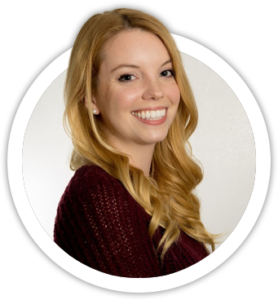 Guest post by Ryan Lanz
Guest post by Ryan Lanz
We’ve all felt it at one time or another. The story loses its shine and you’re left with a half-completed story. Why does this happen, and how do you continue?
For a lot of writers, this is the mid-point of the story, but truly, it can happen at any point. I want to focus on something entirely different from “writer’s block”; this topic regards when you know what to write next, but you just don’t feel like doing so.
Of course, motivation is not permanent. But then, neither is bathing; but it is something you should do on a regular basis.” – Zig Ziglar
The cursor blinks at you, nudging you to continue typing, but the combination of your eyes drooping and the itch to do something else feels overwhelming. You’ve already procrastinated enough today. Your bedroom can only be cleaned so many times, and you’ve already checked Facebook, Twitter, and your email twice in the past half-hour.
Discipline is choosing between what you want now and what you want most.
You’re a writer. You know how to get the job done; it’s the motivation that’s lagging. Let’s look at some different factors.
Your story no longer excites you
For me, this usually happens just on the other side of the midpoint, roughly 55% into the book. About then, I usually start envying short story writers. It’s when the thrill of the beginning and even the spike of the midpoint event wears off, and I have to begin laying the ground work for the finale, but it’s not yet to the exciting build-up for the ending climax.
Wherever it normally happens for you (and it could change from story to story), it can be a trial. Why does it happen? Here are a few possibilities:
- You’ve already thought of the next story, and you’re more interested in starting the new one than finishing the current one
- You hit a plot snag and aren’t looking forward to unraveling it
- You realize that your story idea might not be as interesting as you thought it was
- Self-doubt creeps in
- Life got in the way of writing, and you’re not as emotionally connected
- Something as simple as: it’s just not new and shiny anymore
The first one gets me every time.
To remedy many of the above, you could take a short break from writing to read your story from the beginning as if it was a finished product. Oftentimes, that brings about the romance for writing this particular piece again.
Whenever I daydream about the next project, I jot down all my ideas onto a pad of paper, but I promise myself not to start writing it until the current project is finished. That way, I have a treasure trove of tidbits to work on by the time I do transition.
Also, take a look at your writing schedule. If you wait until you have 4 hours+ to write, try writing more often but in smaller chunks. It could be your method of attack that’s holding you back.
Motivation is what gets you started. Habit is what keeps you going. – Jim Rohn
Mainly for me, I had to come to grips with the concept that at some point in the book, it would be a chore to continue. Perhaps other authors aren’t this way, but that’s how I operate. I had to wean myself from the mysticism that I have to be in constant love with a story to write it. 100% of the time, when I go back to polish what I had to prod myself to finish, the magic is there again.
Whether you reluctantly write and later polish with passion, or you passionately write and later reluctantly polish, in the end, the reader can’t tell the difference. Either way, a quality product is completed. But if you wait for passion to do anything, the project will likely get done much, much later.
What I adore is supreme professionalism. I’m bored by writers who can write only when it’s raining. —Noel Coward
Just plain don’t feel like it
To me, this is another thing altogether. This could be due to some of the reasons above, but largely affected by mood, hunger, emotional state-of-mind, how restful I am, etc. Here are some things that I do to warm-up to writing when I don’t feel like it. In advance, don’t judge me.
- I go into a different room (dependent on a portable writing apparatus). I read a study once that changing rooms resets the mind, but for whatever reason, it seems to help.
- Reading some of what I wrote the day before to get me in the mood. This usually does the trick, for me.
- I listen to music. In the Writer’s Toolbox, there are two of my favorite picks of music to listen to while I write.
- I have a small spray bottle of water, and I occasionally spray myself in the face. This is used when I am tempted to curl over my laptop and take a nap. This is the “don’t judge me part,” if you were wondering. So, yes, my methods for staying awake is the same as the punishment for your cat for eating the houseplant.
Similar to what I mentioned in the last section, usually when I don’t feel like writing, I do it anyway. There are a few times that I succumb, but I usually remind myself that people can’t tell their boss that they don’t feel like working, which is something Janci Patterson also mentioned in my interview with her.
Conclusion
Everyone has a different method. All these suggestions might work for you, or perhaps none of them will. The key is to experiment with what motivates you to write, so that you can get one step closer to your writerly goals.
RYAN LANZ is writer and owner of http://ryanlanz.com/writers-toolbox/. He blogs about writing tips, methods, and best practices. Visit his site for more tips for authors, and follow him on Twitter: @TheRyanLanz
Don’t miss a post! When you sign up for the KM Editorial monthly newsletter you’ll receive a free downloadable Guide to Getting Published.


 Download your free copy of these 8 tried-and-true strategies to stop self-doubt and imposter syndrome as a writer. And, build the power to resist it in the future.
Download your free copy of these 8 tried-and-true strategies to stop self-doubt and imposter syndrome as a writer. And, build the power to resist it in the future.